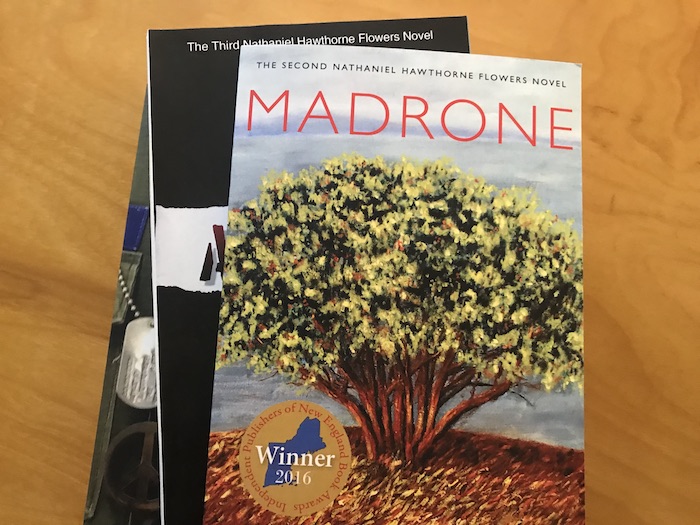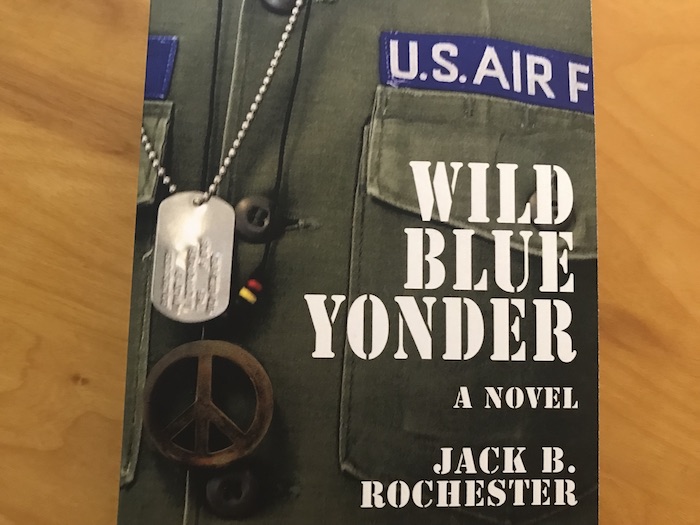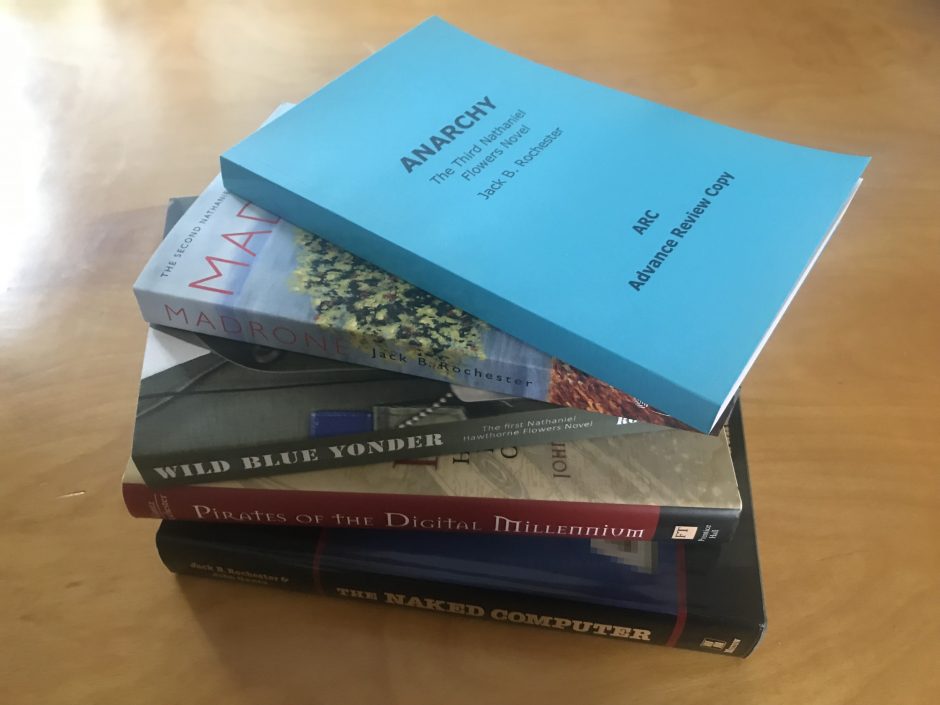Editor’s Note: Click the download button to view the poem! ***
“The Mystery of Names,” A Short Story by Mir-Yashar Seyedbagheri
My sister’s name was Nancy Drew. I was Nick. No joke. And in 1955, everyone gave her grief over it, my nerdy, tender sister who always wore lavender and sported large cat-eye glasses, who smelled like perfume and soap, the sweetest of scents. Motherly scents even, scents that were rare in our little home. “Solve the mystery of my bad grades,” some student said. “What about my parents?” another student said. “Why are they so uptight? You’re the detective, Nancy Drew.” “Solve the mystery of your unpopularity,” another, crueler asshole growled. “And the mystery of those glasses,” someone else said. They showed up with flashlights and magnifying glasses like the actual Nancy carried. They all teased her, in the halls, in her classrooms. There were the brunettes with their pageboys, the tall basketball players with…
“SuperGuy” The Third Saturday Night Podcast
Hey Podcast Fans, herewith two more chapters from “SuperGuy!” We hope you’re enjoying this zany novel. In case you need a refresher, Oliver is a Milwaukee, Wisconsin desk (not disk) jockey who suddenly finds himself transformed into a superhero. If you’re a desk jockey, you can probably tilt back in your faux Aeron, close your eyes and totally imagine what this feels like. If not, perhaps at least you’re wondering what it would feel like? Well, here’s your chance, and instead of having to read about it on your Kindle, lucky you! Listen to it right here, exclusively on the Fictional Café. If you missed Chapters 1 and 2, click here. Chapters 3 and4 are here. Please click on the arrow below to listen to the Chapter 5 of SuperGuy. Please click on the arrow…
“Madrone,” Because People Asked “What Happens Next?”
It’s March, 1969. Twenty-five-year-old Nathaniel Hawthorne Flowers, two months out of the military, arrives in California and into the arms of Jane Chandler, the girl he left behind. Jane, now a junior at the University of California, Santa Cruz, wants Nate to join her in the creative writing program, headed by Professor Gerald “Gerry” Iron Moccasin, a Lacota Sioux Indian with a penchant for literary theory. Nate is thwarted in his application for admission to Santa Cruz by his poor grades from the University of Chicago, giving him cause to rethink his academic career path. Pressured on every side by Gerry, Jane’s father Will, his widowed mother and the button-down American path to success, Nate increasingly questions whether a college degree—even from prestigious UC Santa Cruz—will help him become a writer. He spurns the college…
Kay Hartung’s Microbial Visions of An Unseen World
With the advancement of science and the ability to view organisms never before seen, Kay Hartung thinks about the great power that such minute things may hold. She contemplates the potential impact of cellular activity on the visible universe and the human species. Over the past two years, she has continued to pursue this interest in her art. I create my own vision of cells, proteins and viruses that don’t actually exist, but are an artistic evolution from familiar forms. I create colonies of cellular shapes that migrate, flow and multiply. The process of painting with encaustic* builds layer upon layer of biomorphic forms, suggesting growth, development and movement. I construct environments for these forms, landscapes in which they can interact. In many of my works you will see that pattern is a predominant characteristic:…
“Wild Blue Yonder,” The Novel That Started It All
It’s 1965. Nathaniel Hawthorne Flowers has lost his father, flunked out of the University of Chicago, and finds himself facing the draft. He opts for four years in the US Air Force over two years of Vietnam in the army. He and four like-minded troops are thrown together at a small remote air base in Germany, where they try to make sense of their lives and the strange world in which they find themselves. These are military misfits whose behavior doesn’t quite qualify for a dishonorable discharge, yet are sufficiently problematic that if they were sent into the Southeast Asia war zone it would look like punishment—therefore more trouble for the military brass. So they are sent to a place irreverently known in the military as “Bumf**k,” where they can be forgotten about until their…
“The Lighthouse,” A Short Story by Derrick R. Lafayette
Featured Image Photo Credit: Wikipedia. West Quoddy Head, in Quoddy Head State Park, Lubec, Maine, is the easternmost point of the contiguous United States. A clump of snow slid from the plunging power lines and splattered atop the coffin. Utility poles leaned on both sides of the road. When Maverick looked up, the empty white sky was blocked by rubber cables. For miles ahead, the snow sparkled untouched. No tracks, nor footprints, completely uncharted. Behind Maverick and Goose were two sets of footprints and sled marks. Thick rope was cutting into their shoulders, dragging the wooden tomb. Its imprints creased the burly coats they’d been wearing for two months. Goose pulled down his wool scarf. The first exhale billowed into a cloud of frost. His nose was beet red, poking out from a black garden of unkempt facial hair,…
“SuperGuy” The Podcast, Part II
We hope you joined us last week and listened the first two chapters of “SuperGuy,” from the novel written by Kurt Clopton and realized as an audiobook by Ruby Fink and the actors at Faux Fiction Audio. If you missed them, click here to catch up. But right now, it’s on with the show! Please click on the arrow below to listen to Chapter 3 of SuperGuy. Please click on the arrow below to listen to Chapter 4 of SuperGuy. We’re SuperGuys’ Happy Hearts Band [lala, la la] and we hope you have enjoyed the show. We’ll be right back here next Saturday night with two more chapters.
Hi! It’s Jack Again.
Nathaniel Hawthorne Flowers’ Milieu The 1960s was our generational time of great social change, not only in America but around the world. It was the first time America had gotten into an unpopular (and ultimately unwinnable) war. Driven by World War II GIs returning home, followed by the 1950s Beat Generation, it was a time of massive youth rebellion against the staid, comfortable, hierarchical parent-child social structure, which had prevailed for decades. These were still times when adults believed youth should be seen and not heard, but as Bob Dylan sang, those times were a-changing. It was the time of the Hippies. When we meet Nathaniel Hawthorne Flowers, he is a true naif, unaware of the ways of the world. One thing he knows: he doesn’t want to be drafted into the Army and tote…
A Personal Message from Founder Jack B. Rochester
We Fictional Café Baristas are not only editors but writers, too. Just as we introduce you to Member Writing and our forthcoming Anthology, from time to time we’ll invite you to learn more of what we’re doing as creative individuals – as I’m doing now. For the past decade I’ve been writing novels about a young man and his coming of age in the 1960s and ‘70s. His name is Nathaniel Hawthorne Flowers, a bookish 20th-century Candide who has been sent off to the Air Force in the midst of the Vietnam War. He will discover friendship, Chinese philosophy, hippie counterculture, and the meaning of romance as he tries to make sense of what’s happening in America. Nate’s fervent wish is to live by Bob Dylan’s refrain: how to avoid making the same mistakes twice….









